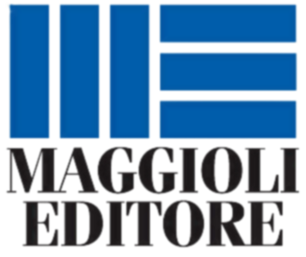Parti: EMI Records [Ireland] Ltd & Ors -v- UPC Communications Ireland Ltd.
FATTO
Nel caso di specie, alcune società discografiche avevano richiesto un provvedimento inibitorio al fine di bloccare l’accesso alla rete da parte di una serie di utenti, colpevoli di aver scaricato illecitamente musica da internet.
Ad essere convenuti non erano però gli autori dell’illecito, bensì l’ISP (access provider) che consentiva l’accesso ad internet a tali utenti. Si trattava di un ISP importante, titolare del 15% circa delle quote del mercato irlandese.
A giudizio dei titolari dei diritti, l’ISP sarebbe nella condizione migliore per impedire la commissione degli illeciti da parte degli utenti. I titolari dei diritti, inoltre, avrebbero fornito agli ISP gli indirizzi IP degli utenti cui era attribuito il downloading illegale, ma tale comunicazione sarebbe stata ignorata.
DECISIONE
La motivazione si dilunga ampiamente sulle ricadute economiche della pirateria, su peer-to-peer legale e illegale e sull’attività concretamente svolta dagli ISP. Tuttavia, si afferma anche che questo trend sia destinato a cambiare, potendosi ipotizzare un rapido decremento nell’utilizzo dei sistemi informatici per finalità illecite. Così la decisione: “I am satisfied that the business of the recording companies is being devastated by internet piracy. This not only undermines their business but ruins the ability of a generation of creative people in Ireland, and elsewhere, to establish a viable living. It is destructive of an important native industry. While the evidence focussed on the recording industry, the retail sector must also be affected by this wholesale theft. Furthermore, the evidence presented convinces me that a substantial portion of the generation now in their teenage years and twenties are actively dissuaded by illegal alternatives from legitimately purchasing music”.
Il giudice, sebbene evidenzi i principali aspetti connessi alla pirateria on-line, rigetta la richiesta dei titolari dei diritti, dal momento che non esiste, nell’ordinamento irlandese, una norma – come quella introdotta in Francia con la c.d. legge Hadopi – che obblighi gli ISP a bloccare l’accesso alla rete, anche nel caso in cui sia stato fornito l’indirizzo IP dell’utente autore dell’illecito contro la proprietà intellettuale.
La decisione, quindi, conclude invitando il Parlamento a legiferare sul punto, ma, in ossequio alla teoria della tripartizione dei poteri, non può che attenersi a quelle che sono le norme in vigore, evitando di incorrere in interpretazioni che finirebbero per stravolgerne la ratio.
Così testualmente nella conclusione della motivazione della sentenza: “Solutions are available to the problem of internet copyright piracy. It is not surprising that the legislative response laid down in our country in the Copyright and Related Rights Act 2000, at a time when this problem was not perceived to be as threatening to the creative and retail economy as it has become in 2010, has made no proper provision for the blocking, diverting or interrupting of internet communications intent on breaching copyright. In failing to provide legislative provisions for blocking, diverting and interrupting internet copyright theft, Ireland is not yet fully in compliance with its obligations under European law. Instead, the only relevant power that the courts are given is to require an internet hosting service to remove copyright material. Respecting, as it does, the doctrine of separation of powers and the rule of law, the Court cannot move to grant injunctive relief to the recording companies against internet piracy, even though that relief is merited on the facts”.
Il testo integrale della decisione è disponibile qui





















Scrivi un commento
Accedi per poter inserire un commento